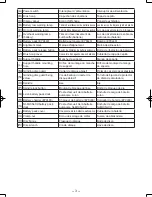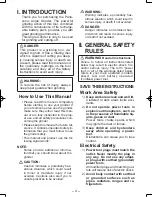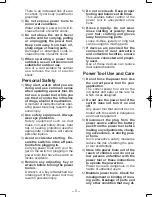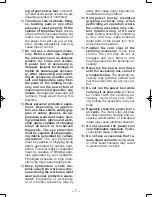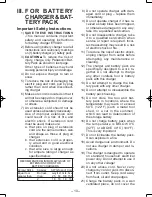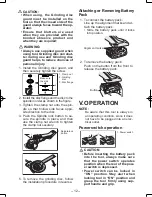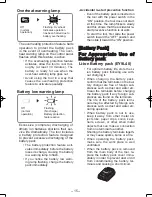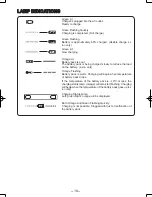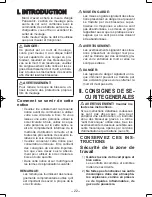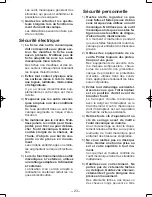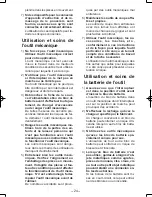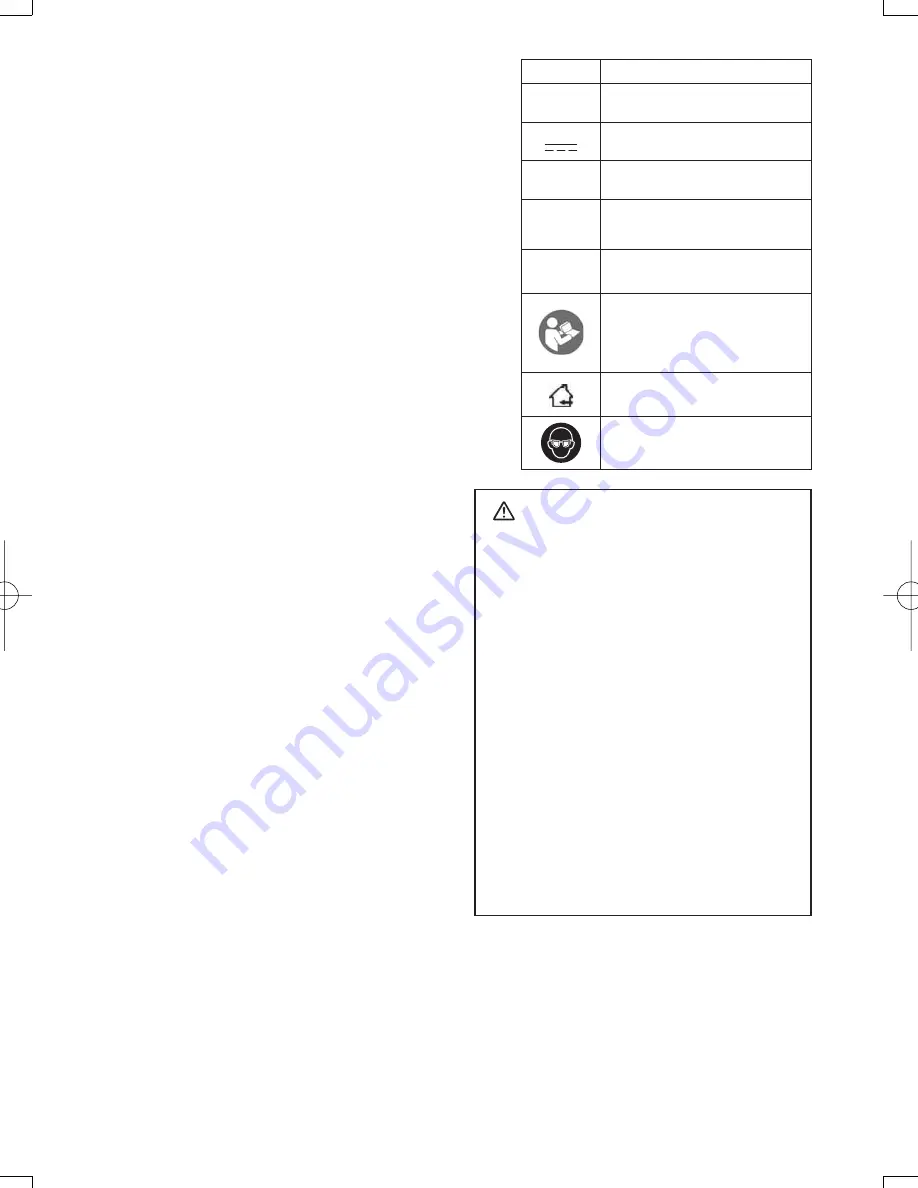
- 9 -
Additional Safety Warnings
Specific for Abrasive Cutting-
Off Operations:
1) Do not “jam” the cut-off wheel
or apply excessive pressure. Do
not attempt to make an exces-
sive depth of cut.
Overstressing
the wheel increases the loading and
susceptibility to twisting or binding of
the wheel in the cut and the possibili-
ty of kickback or wheel breakage.
2)
Do not position your body in
line with and behind the rotat-
ing wheel.
When the wheel, at the
point of operation, is moving away
from your body, the possible kick-
back may propel the spinning wheel
and the power tool directly at you.
3) When wheel is binding or when
interrupting a cut for any reason,
switch off the power tool and hold
the power tool motionless until
the wheel comes to a complete
stop. Never attempt to remove the
cut-off wheel from the cut while
the wheel is in motion otherwise
kickback may occur.
Investigate
and take corrective action to elimi-
nate the cause of wheel binding.
4) Do not restart the cutting oper-
ation in the workpiece. Let the
wheel reach full speed and care-
fully reenter the cut.
The wheel
may bind, walk up or kickback if
the power tool is restarted in the
workpiece.
5) Support panels or any oversized
workpiece to minimize the risk
of wheel pinching and kickback.
Large workpieces tend to sag un-
der their own weight. Supports
must be placed under the work-
piece near the line of cut and near
the edge of the workpiece on both
sides of the wheel.
6) Use extra caution when mak-
ing a “pocket cut” into existing
walls or other blind areas.
The
protruding wheel may cut gas or
water pipes, electrical wiring or ob-
jects that can cause kickback.
Symbol Meaning
V
Volts
Direct current
n
Rated speed
… min
-1
Revolutions or
reciprocation per minutes
Ah
Electrical capacity of bat-
tery pack
To reduce the risk of
injury, user must read and
understand instruction
manual.
For indoor use only.
Always wear eye protec-
tion
WARNING:
Some dust created by power sand-
ing, sawing, grinding, drilling, and
other construction activities contains
chemicals known to the State of Cal-
ifornia to cause cancer, birth defects
or other reproductive harm. Some
examples of these chemicals are:
* Lead from lead-based paints
* Crystalline silica from bricks and
cement and other masonry prod-
ucts
* Arsenic and chromium from chem-
ically-treated lumber.
To reduce your exposure to these
chemicals: work in a well ventilated
area, and work with approved safety
equipment, such as dust masks that
are specially designed to filter the
microscopic particles.



